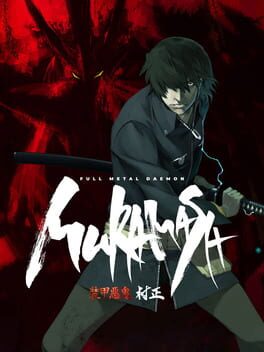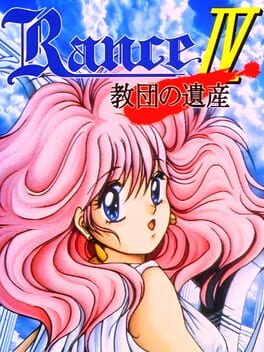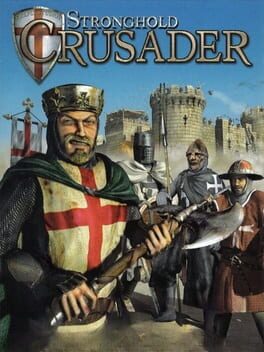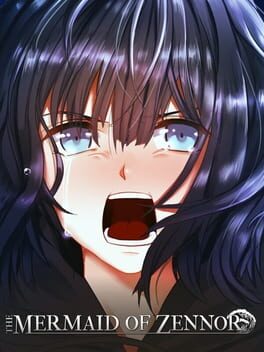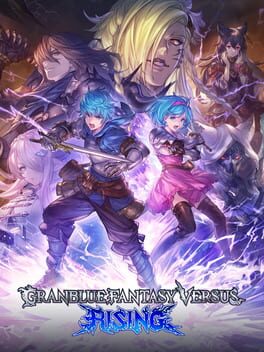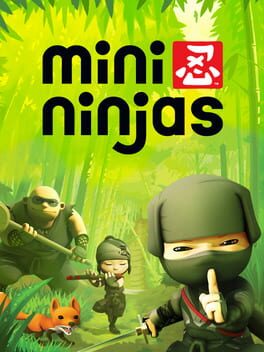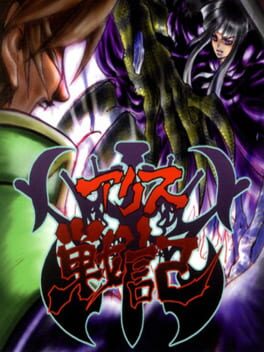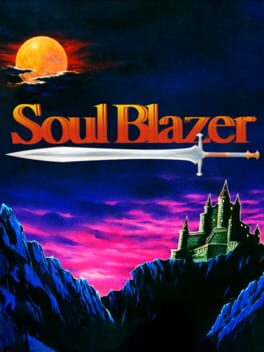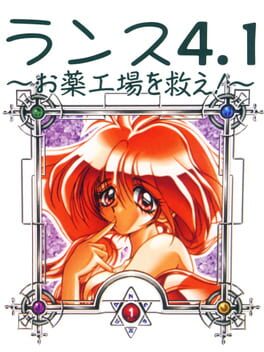Sachi
I have the theory that Chachamaru is by far the most popular heroine (especially in JP) because the readers subconsciously understand that she's the only life-affirming character in the whole game. You would think it's weird to like this borderline side-character the most, who barely has a route herself, but it makes complete sense when you consider her thematic relevance. Though I HIGHLY doubt anyone actually understands why she's the best one beyond subconsciously. Regardless, she's best girl, because she's the most human of them.
Something crazy about Muramasa is that it actually solves literally all the questions it poses in one particular scene, but then never touches on this again, pretending like they're still unsolved issues.
I don't wanna lay my cards bare in a backloggd review of all things, since I plan on making a large youtube video about this, but I wonder how many people caught on to that. And even more importantly, I wonder how many people continued to understand what this means about the game, and what Muramasa is actually about.
I don't wanna lay my cards bare in a backloggd review of all things, since I plan on making a large youtube video about this, but I wonder how many people caught on to that. And even more importantly, I wonder how many people continued to understand what this means about the game, and what Muramasa is actually about.
2016
The final area in this game is called "Dreg Heap," a literal pile of shit. In it, you can find Patches, enemies clobbed next to each other without regard to satisfying level- or enemy-design, nonsensical shortcuts, and the Dark Souls version of Godzilla.
There has never been a less subtle ending. And yet, people still slobber up the souls series like the creator hasn't told them to fuck off back in 2016 already. Actually braindead.
This game feels like Miyazaki's suicide note. Like he's saying, "I give up on humanity, I abandon all my individuality. I will become just another normie AAA developer, because I don't have the strength to continue pursuing the new and interesting. I could never be as strong as someone like Hideaki Anno."
There has never been a less subtle ending. And yet, people still slobber up the souls series like the creator hasn't told them to fuck off back in 2016 already. Actually braindead.
This game feels like Miyazaki's suicide note. Like he's saying, "I give up on humanity, I abandon all my individuality. I will become just another normie AAA developer, because I don't have the strength to continue pursuing the new and interesting. I could never be as strong as someone like Hideaki Anno."
2022
The final chapter is an atrocious mess that pukes one badly designed boss after another at you without any thought.
In any case.
It's weird how the main thematic question of Rance 4 is dismissed by fans: The dichotomy between Bitch and Rance.
Over and over, the game forces you to question what, really, the difference between the protagonist and the villain are. It goes so far as to replicate the exact same scene of the two: Bitch complains about his companions being the reason for his failure, a few hours later in the game, Rance does the same thing.
At the same time, this makes the answer as clear as day, and shows why Rance can live on and Bitch goes on to die as a nobody: Rance thrusts forward.
Bitch always chooses the easy way out, he would rather live a stagnant life if it meant not having to care for anything.
While Rance never accepts lying down, he ALWAYS chases after the future. "A boring-ass ending where everything is set out is not worth his time."
In the final chapter, this is again clearly shown by him choosing to lazily fooling around with Io instead of taking care of the issue immediately when he still had the chance. While it doesn't make much sense at this time of the story for him to accept a trade with Bitch (especially not after seeing what he did to Merim), it makes sense thematically. He gets the just punishment for taking the easy way out, by having to fight a million more enemies and almost losing everything he loves.
Simultaneously, this is what makes Rance such a strong comedic character. Many times, what seems like an incredibly stupid and thoughtless action is forgiven by the story, just because he's Rance. He has such ridiculous luck that he gets out of danger even if he shouldn't have over and over again. He is a bug in the system, and doesn't play by the world's rules. Still, this doesn't mean that he can do whatever the hell he wants, it just means that the narrative is more lenient with him for, among other reasons, comedic effect.
In any case.
It's weird how the main thematic question of Rance 4 is dismissed by fans: The dichotomy between Bitch and Rance.
Over and over, the game forces you to question what, really, the difference between the protagonist and the villain are. It goes so far as to replicate the exact same scene of the two: Bitch complains about his companions being the reason for his failure, a few hours later in the game, Rance does the same thing.
At the same time, this makes the answer as clear as day, and shows why Rance can live on and Bitch goes on to die as a nobody: Rance thrusts forward.
Bitch always chooses the easy way out, he would rather live a stagnant life if it meant not having to care for anything.
While Rance never accepts lying down, he ALWAYS chases after the future. "A boring-ass ending where everything is set out is not worth his time."
In the final chapter, this is again clearly shown by him choosing to lazily fooling around with Io instead of taking care of the issue immediately when he still had the chance. While it doesn't make much sense at this time of the story for him to accept a trade with Bitch (especially not after seeing what he did to Merim), it makes sense thematically. He gets the just punishment for taking the easy way out, by having to fight a million more enemies and almost losing everything he loves.
Simultaneously, this is what makes Rance such a strong comedic character. Many times, what seems like an incredibly stupid and thoughtless action is forgiven by the story, just because he's Rance. He has such ridiculous luck that he gets out of danger even if he shouldn't have over and over again. He is a bug in the system, and doesn't play by the world's rules. Still, this doesn't mean that he can do whatever the hell he wants, it just means that the narrative is more lenient with him for, among other reasons, comedic effect.
2002
The primary reasons this game, despite all the flaws, magically works are twofold:
1. The absurd brokenness works in its favour.
Ale makes any food production obsolete (you can run the entire game with a self-sustaining ale system without having to ever produce a singe piece of food for your population), bread far exceeds any other food production, catapults destroy castles in seconds, shields are insane, etc. - all of this actually works in its favour. Because it's so broken, it FORCES you to engage with its mechanics on a deeper level if you wish to get any enjoyment out of it. You have to utilize everything and anything if you're actually trying to have fun with the game and refuse to abuse the broken stuff. Due to that, it holds up with games that are FAR more complex.
2. The childlike wonder.
The game SHINES with personality. Each lord is extremely memorable and unique in their own way. Every villager has a name and something to say about you. All the units have different, entertaining dialogue. All the while, the game never tells you everything. For example, Emir mentions his mother only once in his dialogue, leading you to fill in the blanks yourself, imaging how his life with his mother might have been. It thrives in this sense of a bigger world that you can never fully know - it's perfect for a childlike sense of wonder that lets you be really curious about the world around you and imagine how things might work at large. This is why Wolf is one of the most memorable characters in ANY game I have played, despite the fact that he has only a bit of dialogue in both the original and Crusader. It leaves you to fill in the blanks, letting you find a far more interesting character than it initially seems within your mind.
So, yeah. Play this game if you haven't abandoned your childlike wonder. It's such a beautifully crafted thing if you're just ready to engage with it.
1. The absurd brokenness works in its favour.
Ale makes any food production obsolete (you can run the entire game with a self-sustaining ale system without having to ever produce a singe piece of food for your population), bread far exceeds any other food production, catapults destroy castles in seconds, shields are insane, etc. - all of this actually works in its favour. Because it's so broken, it FORCES you to engage with its mechanics on a deeper level if you wish to get any enjoyment out of it. You have to utilize everything and anything if you're actually trying to have fun with the game and refuse to abuse the broken stuff. Due to that, it holds up with games that are FAR more complex.
2. The childlike wonder.
The game SHINES with personality. Each lord is extremely memorable and unique in their own way. Every villager has a name and something to say about you. All the units have different, entertaining dialogue. All the while, the game never tells you everything. For example, Emir mentions his mother only once in his dialogue, leading you to fill in the blanks yourself, imaging how his life with his mother might have been. It thrives in this sense of a bigger world that you can never fully know - it's perfect for a childlike sense of wonder that lets you be really curious about the world around you and imagine how things might work at large. This is why Wolf is one of the most memorable characters in ANY game I have played, despite the fact that he has only a bit of dialogue in both the original and Crusader. It leaves you to fill in the blanks, letting you find a far more interesting character than it initially seems within your mind.
So, yeah. Play this game if you haven't abandoned your childlike wonder. It's such a beautifully crafted thing if you're just ready to engage with it.
An angst-inducing yet still ultimately wholesome story of an autistic girl trying to navigate through her life at school and at home, struggling to understand herself and others in the process. In comparison to Ebi-hime’s -Lynne-, a story quite similar in atmosphere to The Mermaid of Zennor, this story deserves much more to be read, mainly because of the aforementioned wholesomeness that Lynne lacks—after all, unhappy stories are worthless.
It's a short, mostly satisfying read, one that has very few issues—none of them being major.
It's a short, mostly satisfying read, one that has very few issues—none of them being major.
Normies like to praise this game for its beautiful visuals, but in motion it tends to look very jarring, with an overuse of pointless effects and sound effects. Every single super putting you into a boring 5 - 15 second cutscene away from the normal battle is inexcusably bad game-design, as it inherently breaks the structure of the fight. Doesn't get better through the fact that they all look like trash.
Gameplay wise, as others have pointed out, there's not much going on here. It's very repetitive and generic, and you'll get bored of the one-note battles that play out the exact same every time before you even clock in at 100 hours. Modern fighting games are losing their individuality. They are becoming bland blobs of video games, that are enjoyed by everybody, yet loved by nobody.
At this point, I don't have much interest in fighting games anymore. Older ones are cool, of course, but their communites are small or non-existent, which conversely means that the game doesn't particularly evolve.
Gameplay wise, as others have pointed out, there's not much going on here. It's very repetitive and generic, and you'll get bored of the one-note battles that play out the exact same every time before you even clock in at 100 hours. Modern fighting games are losing their individuality. They are becoming bland blobs of video games, that are enjoyed by everybody, yet loved by nobody.
At this point, I don't have much interest in fighting games anymore. Older ones are cool, of course, but their communites are small or non-existent, which conversely means that the game doesn't particularly evolve.
2009
What prevents this game from being a masterpiece is the mechanical design of the characters. Only three of them have any worth (Shun, Futo, and the protagonist), while the rest have nothing interesting going on.
But as others have pointed out, the visuals and sound are pretty insane, so meh.
The second half of the game is its main appeal: The gameplay takes a MASSIVE step upwards; every level is unique and fun in its own way. Particularly the koi fish and avalanche levels stand out.
I recommend playing on hard mode while trying to avoid as many enemies as possible. Makes the encounters a lot more fun.
But as others have pointed out, the visuals and sound are pretty insane, so meh.
The second half of the game is its main appeal: The gameplay takes a MASSIVE step upwards; every level is unique and fun in its own way. Particularly the koi fish and avalanche levels stand out.
I recommend playing on hard mode while trying to avoid as many enemies as possible. Makes the encounters a lot more fun.
2008
2022
One of the greatest covers I’ve ever seen.
It immediately draws you into a desperate world of struggle, hardships, and seemingly unwinnable clashes.
It speaks to you, and says: “This is a game about suffering. You will crawl through the mud, be pushed into the deepest depths of hell over and over again. Yet you will carry on, with hope in your heart, because that’s the hero’s path.”
However, in the game itself, none of these aspects are present.
The game moves way too fluid, way too smoothly, to feel satisfying.
The bosses don’t feel like they’re crushing you, making you crawl through the mud, they make you chuckle at the ridiculousness of the balancing.
The level-design is poor; you simply try to get through each area as quickly as possible without any incentive to take a look at your supposedly beautiful—yet in the end, disappointingly superficial—surroundings.
Outside of a few notable outstanding songs, the soundtrack is lacking. Listening to it doesn’t make you bathe in memories; it merely bores you.
The visuals are indeed picturesque, yet nothing about them is particularly noteworthy otherwise—there’s nothing else to make them unique.
In the end, Elden Ring is a tiring, unsatisfying game that makes you long for the incredible game it could have been had the creators simply made a few different choices.
It immediately draws you into a desperate world of struggle, hardships, and seemingly unwinnable clashes.
It speaks to you, and says: “This is a game about suffering. You will crawl through the mud, be pushed into the deepest depths of hell over and over again. Yet you will carry on, with hope in your heart, because that’s the hero’s path.”
However, in the game itself, none of these aspects are present.
The game moves way too fluid, way too smoothly, to feel satisfying.
The bosses don’t feel like they’re crushing you, making you crawl through the mud, they make you chuckle at the ridiculousness of the balancing.
The level-design is poor; you simply try to get through each area as quickly as possible without any incentive to take a look at your supposedly beautiful—yet in the end, disappointingly superficial—surroundings.
Outside of a few notable outstanding songs, the soundtrack is lacking. Listening to it doesn’t make you bathe in memories; it merely bores you.
The visuals are indeed picturesque, yet nothing about them is particularly noteworthy otherwise—there’s nothing else to make them unique.
In the end, Elden Ring is a tiring, unsatisfying game that makes you long for the incredible game it could have been had the creators simply made a few different choices.
1992
"Tools are there to make peoples' lives easier. If tools are there to use people, their culture will decline and they will become unhappy."
As is usual with Quintet games, the ending is absolutely amazing, and it alone makes the whole game worth playing.
However, the decline of ActRaiser is devastatingly noticable. At the time, it was believed that ActRaiser's town-building simulator was disliked by the masses, and they should instead switch to a much more action-heavy game-style. Therefore, while Soul Blazer does partially retain the narrative ideas that made ActRaiser stand out - Heaven, Earth, and Hell, individualism, finding happiness, how God is seen by the people of the earth, and so forth - those aspects are undercut by the excessive focus on gameplay that, frankly, has not evolved past the stages of ActRaiser. This wasn't a problem in ActRaiser, as its action-segments were so short, but in a game so focused on the action, with only a few moments of brilliance there, I'd rather just play a better action game. Or even a better Quintet game, as all themes explored in Soul Blazer are better explored in their other games.
It's telling that the most memorable moments are the interactions between the player and the citizens of the earth: The remorseful king, Dr. Leo, Lisa, and so many more, I will remember much longer and much more fondly than any of the combat segments.
Of course, as is usual with Quintet, the soundtrack and visuals are pretty amazing, but they aren't enough to carry the combat on their own.
Overall, unless you are interested in Quintet's history, you should just play a different game of theirs. If you are already a fan of the studio, then the ending is so amazing that it alone makes the whole 7-hour journey worth experiencing.
As is usual with Quintet games, the ending is absolutely amazing, and it alone makes the whole game worth playing.
However, the decline of ActRaiser is devastatingly noticable. At the time, it was believed that ActRaiser's town-building simulator was disliked by the masses, and they should instead switch to a much more action-heavy game-style. Therefore, while Soul Blazer does partially retain the narrative ideas that made ActRaiser stand out - Heaven, Earth, and Hell, individualism, finding happiness, how God is seen by the people of the earth, and so forth - those aspects are undercut by the excessive focus on gameplay that, frankly, has not evolved past the stages of ActRaiser. This wasn't a problem in ActRaiser, as its action-segments were so short, but in a game so focused on the action, with only a few moments of brilliance there, I'd rather just play a better action game. Or even a better Quintet game, as all themes explored in Soul Blazer are better explored in their other games.
It's telling that the most memorable moments are the interactions between the player and the citizens of the earth: The remorseful king, Dr. Leo, Lisa, and so many more, I will remember much longer and much more fondly than any of the combat segments.
Of course, as is usual with Quintet, the soundtrack and visuals are pretty amazing, but they aren't enough to carry the combat on their own.
Overall, unless you are interested in Quintet's history, you should just play a different game of theirs. If you are already a fan of the studio, then the ending is so amazing that it alone makes the whole 7-hour journey worth experiencing.
2022
The moment I realized this "great revelation that changes the entire structure of the story" that people have been talking about and endlessly praising the game for was something I had predicted 15 minutes into the first chapter, I lost all drive to finish this game. Although I appreciate the unique style of storytelling that serves to deconstruct the concept of RPGs, it's not nearly enough to earn the title of "masterpiece," or even a good game. It's not as insane and unique as people make it out to be.
Plus, the first few chapters themselves are, honestly, despite the few brilliant moments of gameplay, nothing special.
Plus, the first few chapters themselves are, honestly, despite the few brilliant moments of gameplay, nothing special.
This is just casual fun with the gang. The comedy is hilarious, the new characters are all fun, the combat works perfectly and most importantly, nothing overstays its welcome. This came out exactly like the developers intended: A cute little game that you can pick up at any point and have a good time.
I initially tried playing through all the bosses, to properly judge this game and give it a fair chance, but once I started fighting the Ancient Dragon all my motivation crumbled into nothingnesss. I then went on to simply reach the credits in the fastest way possible. Not because of this game's difficulty - I firmly believe that none of the Souls-Games are particularly difficult - but because there is nothing to this game.
It is so endlessly tiring and lazy.
Hollow levels finished off with hollow boss fights, accompanied by a bad story that has nothing to say.
A work that fundamentally misunderstands the philosophy of Dark Souls, and nobody should bother with it.
It is so endlessly tiring and lazy.
Hollow levels finished off with hollow boss fights, accompanied by a bad story that has nothing to say.
A work that fundamentally misunderstands the philosophy of Dark Souls, and nobody should bother with it.
